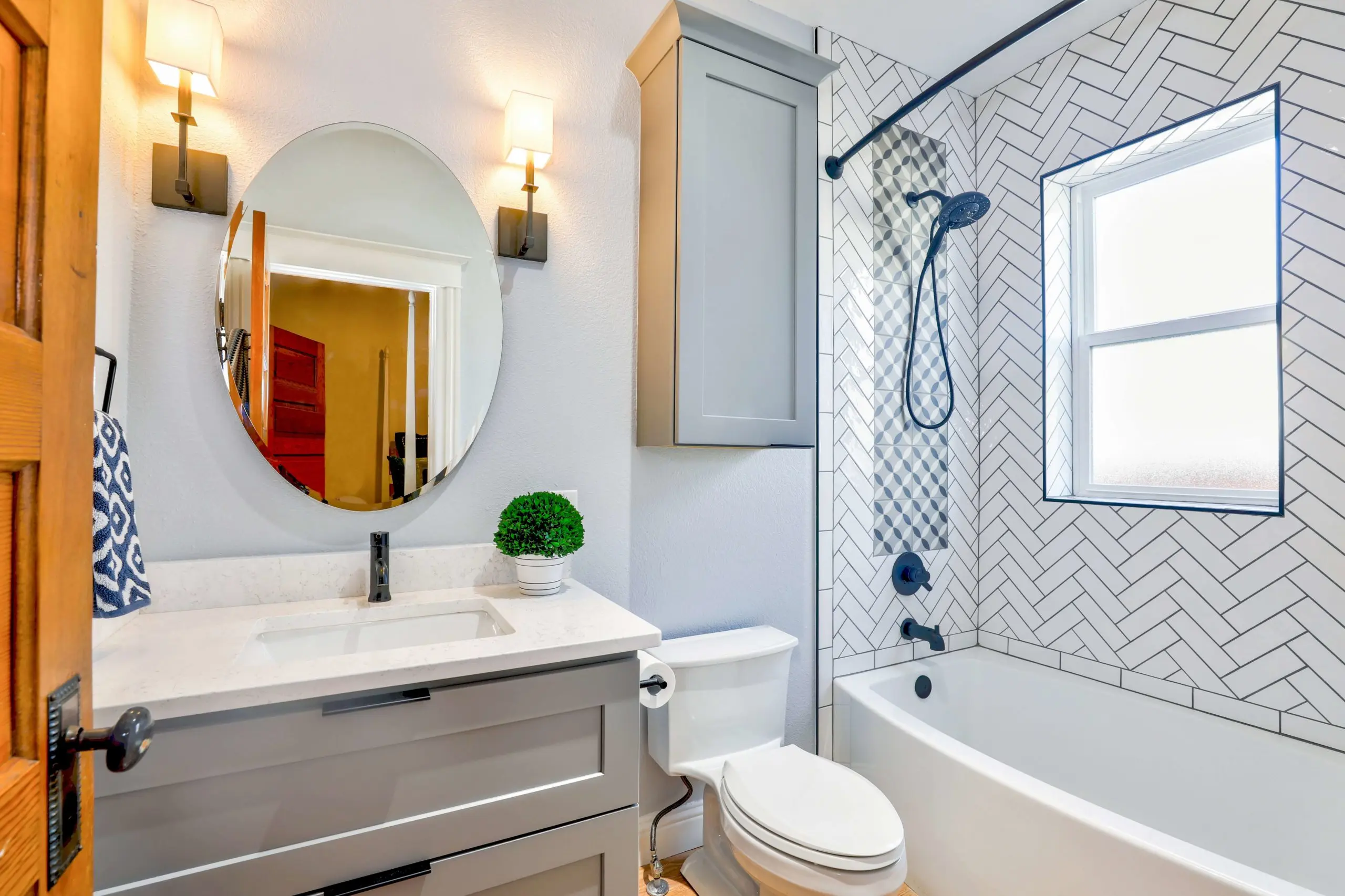It’s no secret that a great bathroom can make or break a home’s selling or renting appeal. Of course, regardless of the size or style, any investor knows that a bathroom renovation or remodeling project will eventually pose the question, “shower or tub?.”
Choosing the right focal feature can help you attract the right type of buyer or renter and increase your asking price.
What Should You Ask Yourself Before Deciding on a Shower or Tub?
As a general rule of thumb, there are three traditional options for a bathroom: freestanding tubs, a shower-tub combo, or a standalone shower.
In the 1990s whirlpool tubs and small shower stalls were the trends. In the early 2000s, people started to shift into oversized bathroom suites.
Going into the new year, it is important to consider what is trending currently, and the answer is not black and white. There are a number of factors that determine if a shower or a tub is a better addition to your flip’s bathroom.
Discovering the right solution for your investment property is made easier when you answer the following five questions.
1. How Much Space Do You Have?
The average bathroom is approximately 40 square feet. A standard tub takes up an impressive 15 square feet, while a shower only takes up 12 square feet of floor space.
If your bathroom has a smaller floor plan, then a walk-in shower, or a caddy-corner shower, can provide the functionality that you need without making residents feel like they are in cramped quarters.
2. Are There Other Bathrooms With Showers or Tubs?
If you only have one full bathroom in your investment property, then market research shows that you should stick to the shower-tub combo. However, if you have multiple bathrooms, then you will be able to explore various options.

For example, if you have an oversized tub in the master suite, then you might consider updating it or replacing it with a luxurious walk-in shower and sauna combination.
Alternatively, if a tub is crowding your small guest bathroom, then you might want to create an open floor plan by replacing it with a shower.
3. What Is Already There and Is It Usable?
Did you know that replacing a bathtub with another tub is typically a $500 to $1,100 project? However, if you want to convert your bathtub to a shower, then you might spend up to $5,000.
Unfortunately, according to HomeAdvisor, installing a walk-in shower can cost approximately $6,000.
With this in mind, the latest reports show that 65 percent of homeowners want a shower in their home, and the right kind of remodel can increase resale value by as much as 20 percent.
4. Are You Selling or Renting?
Building off of the idea above, knowing your end game of either selling or renting the property can help you determine which fixture to feature. If you plan to sell the home, you may be more inclined to include a tub for families or long-term inhabitants.
Even if a buyer does not have a need for a tub now, they may need one in the future and want to avoid a possible remodel by purchasing a home with at least one tub installed.
If you plan to go the rental route, renters tend to be either younger, single adults or adults over the age of 65. The location of your flip may help inform which type of renter you will attract.
Single adults may not need a tub and prefer the eco-friendly aspects of a shower. Older adults may feel more secure using a classic tub.
To get an idea of what people in your area are looking for, check other comparable sales or rentals to see if there is a trend in bathroom features.
5. Who Is Your Target Renting or Selling Demographic?
Knowing your target renting or selling demographic will help you decide between a shower and a tub. The general rule of thumb is that there should be at least one bathtub in a multi-bath apartment, condo, or home.
Additionally, the bathtub is the preferred bathing feature for families with young children and pets. While going tub-less might not directly lower the value of your investment home, it could alienate potential buyers who are thinking about having a family or getting a pet.

Working professionals and individuals with disabilities typically prefer the convenience of a luxurious oversized shower. These showers offer a place to relax and are more accessible for those who may have difficulty getting in and out of a traditional tub.
Adding handrails and a place to sit to the shower may help make it more accessible for different demographics.
As an added bonus, the average shower only uses 20 gallons of water, while the average bathtub uses 30 gallons.
If you are planning on selling your home, and already have other energy-efficient measures in place, then you might want to consider the shower’s smaller environmental footprint.
Alternatively, if you are selling your home and have the space to create a master shower with a rainforest showerhead and spray nozzles, then you can quickly say goodbye to your bathtub as you appeal to a large demographic.
Shower or Tub? Decide What’s Right for Your Next Investment
Of course, deciding which feature to include in your new bathroom is only one of many decisions you will have to make when flipping a property.
When you’re ready to take the next step toward finding the right property to match your investment goals, let New Western find deals for you.
An agent will reach out to learn more about your unique investment criteria. Your agent will begin sending you properties that are a good match for your investment goals.
No subscription fees necessary just deals sent straight to your inbox. Contact New Western today and begin your journey towards answering the question shower or tub once and for all.







